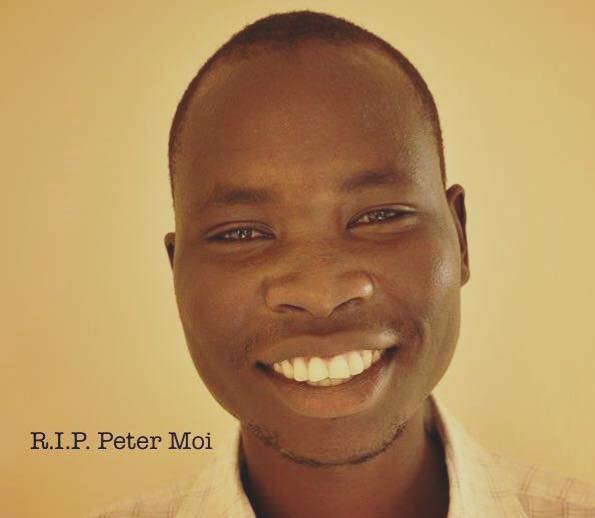Authors: Rachel Pulfer, Executive Director and Grant McDonald, International Trainer
The current President of South Sudan, Salva Kiir, has backed down from a statement made last week, when he threatened to kill journalists who reported “against the country.”
Kiir made these comments at the airport in the capital city Juba on August 17th, en route to a command performance at yet another round of peace talks in Addis Ababa.
Two days later, a South Sudanese journalist was dead.
Peter Julius Moi was shot in the back as he made his way home from work at The Corporate, a weekly business newspaper based in Juba. His wallet and papers were found on him the next day.
While an investigation is still ongoing, robbery was not, it would appear, top of mind for the person who pulled the trigger.
Yesterday, Kiir retracted his statement. But the damage had been done.
Click here for a radio account from JHR international trainer Grant McDonald for RFI.
There is nothing quite like such an incident for concentrating the mind on precisely why Journalists for Human Rights is working in South Sudan.
Since December 2013, South Sudan has been gripped by a brutal civil war.
The conflict ignited when the president, Salva Kiir, of the ruling Dinka ethnicity, accused the deputy president Riek Machar, a Nuer, of an attempted coup.
To date an estimated 50,000 have died, and millions more displaced. Fields have gone unplanted. The World Food Programme warns that a significant percentage of the population is now facing mass starvation.
In four short years, the world’s newest country faces humanitarian disaster on an epic scale.
The media has been caught in the cross-fire. Seven journalists have been killed this year alone.
Reporters in South Sudan work in an atmosphere of fear and self-censorship. With journalists paying the ultimate price for attempting to report the truth, it’s easy to see why.
To date, Journalists for Human Rights has run a tight, focused pilot project in South Sudan.
JHR’s initiative, funded by the United Nations Democracy Fund and led by sector leader David de Dau and international trainer Grant McDonald, has been based primarily in the capital city Juba.
JHR has also conducted on-the-job training and regional workshops in outer states – where and when the ongoing civil conflict allows it.
We have maintained a presence in Juba for 13 months, working out of the office of our lead implementing partner, the Agency for Independent Media.
We have trained 185 journalists across the sector on human rights reporting. To date, they have produced stories on issues ranging from moribund ambulance service to maternal mortality.
We’ve worked with key media managers on how to scale and build their businesses.
We’ve built a course in human rights reporting – currently under consideration for inclusion as curriculum at the University of Juba.
And, courtesy of well-placed and influential local advocates and a grass-roots security strategy that has served us equally well in Sierra Leone, Liberia and the Democratic Republic of the Congo, we’ve not lost a single journalist or trainer to the conflict.
In fact, one of the largest goals JHR has in any country it works in, is to introduce knowledge which will continue to spread through the journalism community long after the project term.
We do this by hiring and training local South Sudanese journalists. They eventually take a leadership role in running JHR workshops and training session within existing media houses.
This transition has already begun in South Sudan, as local trainers Onen Walter Solomon, and Kim Otor organized and delivered a JHR workshop on human rights reporting this week.
The room was at capacity, full of enthusiastic young students studying Mass Communications at The University of Juba.
JHR project manager Robin Pierro and interim executive director Danny Glenwright designed a scaled version of this project last year.
It will enable JHR to significantly expand and extend the scope of the South Sudan initiative.
Pierro and Glenwright went to South Sudan last summer to do the needs assessment for this project. (That’s development-speak for canvassing the sector to determine what is of greatest need, and how a media development project of the kind JHR delivers could best meet that need.)
Speaking with Alfred Taban, an eminence grise of the South Sudanese media sector and publisher of leading local newspaper the Juba Monitor, amongst others, it rapidly became clear that the number one issue facing South Sudanese journalists is security.
Also clear: a project that enabled the sector to stabilize and institutionalize its relationship with authorities would be the best possible way to put JHR’s limited resources to best use for the future of the media in the world’s youngest country.
Informed by feedback from Taban, current project leader David de Dau and others, the proposed project will work with sector leaders and media partners as well as government officials to establish a Press Council. (That’s an independent authority mandated to arbitrate disputes between press and government.)
It will also provide sensitization training for officials on how to work with the press, and build strong, open channels of communication – both formal and informal – between authorities and the media.
The end goal is to stabilize what is currently an incredibly dangerous and volatile situation for journalists – and, in so doing, enable higher quality journalism on human rights issues to thrive.
JHR will be working over the next few months with the Canadian government and other donors to determine terms and next steps to enable this project to see the light of day.
It will not be easy.
But in light of the news out of South Sudan this past week, it has never been more clear where JHR should be working – and why.
For further information, please follow our twitter feed @jhrnews or check www.jhr.ca/about/where_we_work



